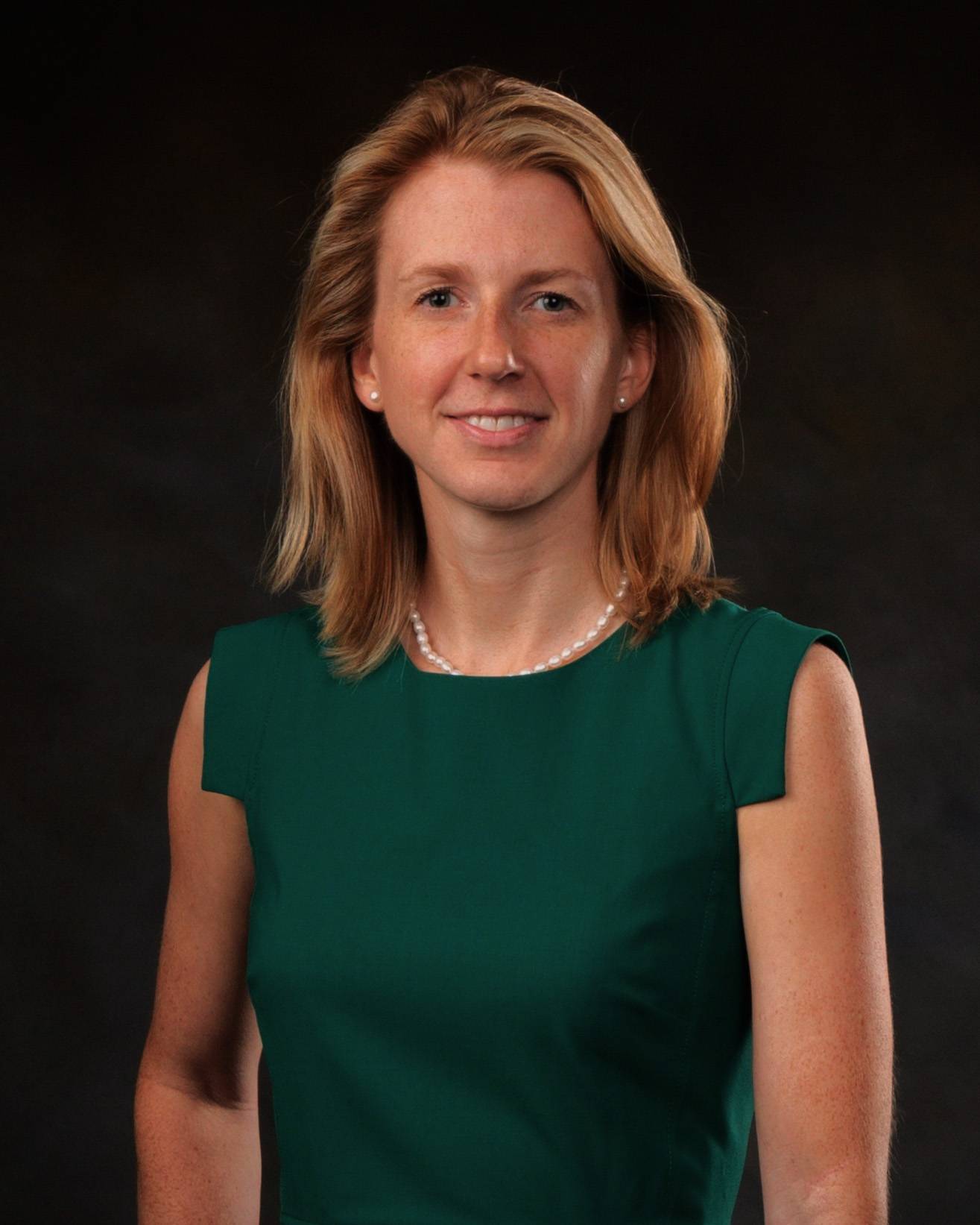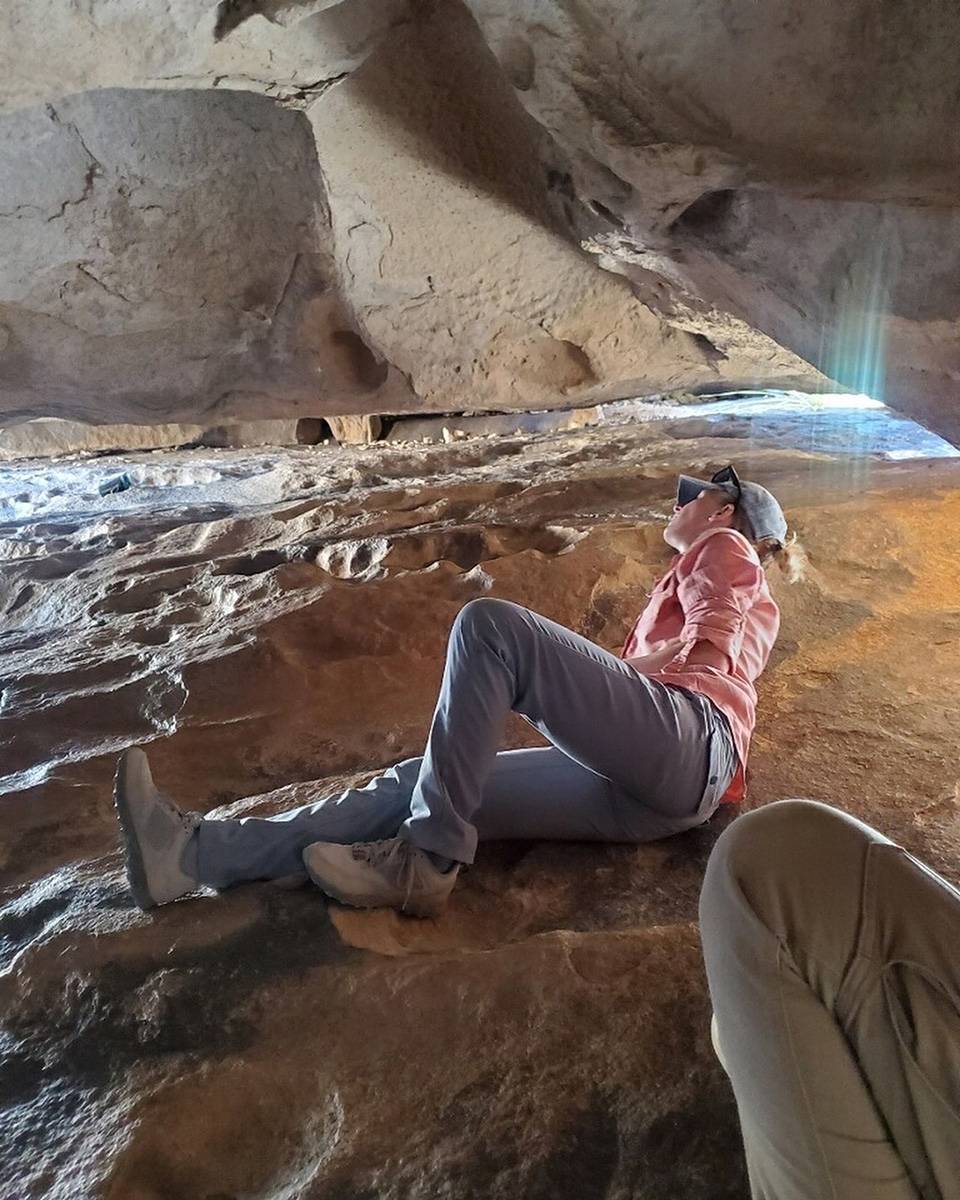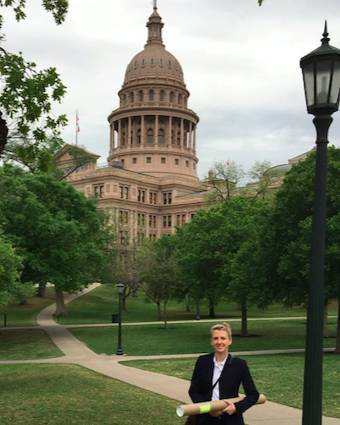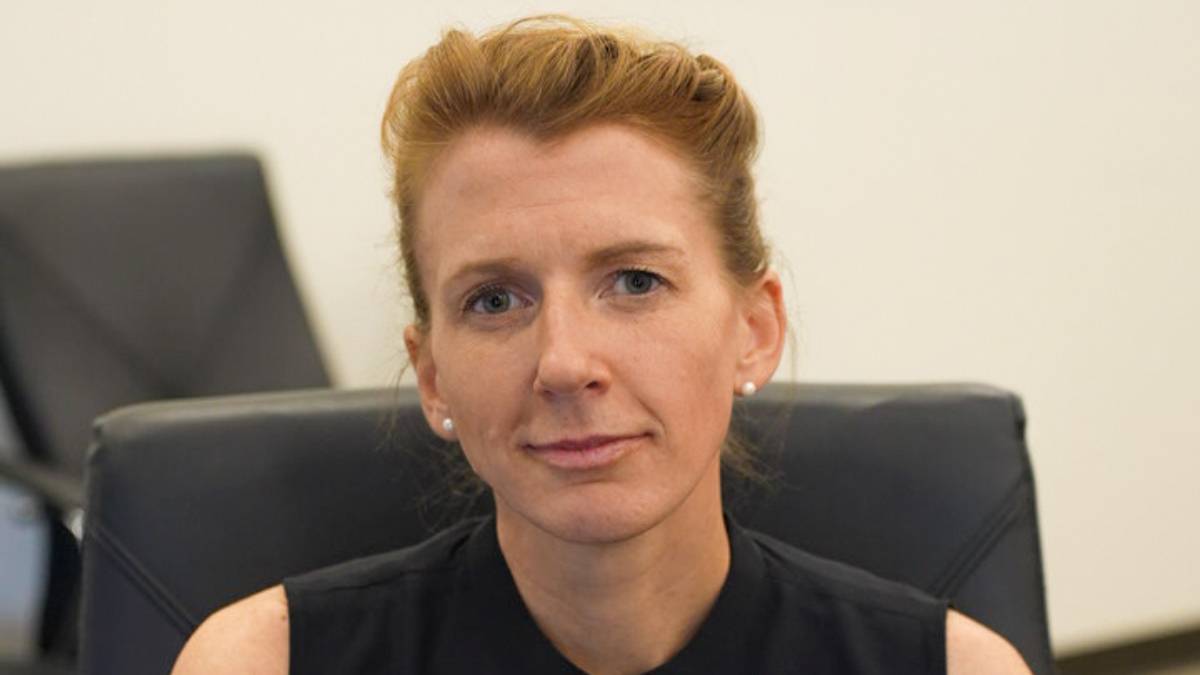Stephanie Baker, a third-year doctoral student in the applied anthropology program at Texas State University, has been awarded the American Academy of Forensic Sciences (AAFS) Douglas M. Lucas Grant to support her groundbreaking research on postmortem interval (PMI) estimation. This highly competitive grant is awarded to outstanding forensic science researchers, recognizing their potential to “initiate original in-depth, problem-oriented research.”
A Journey into Forensic Anthropology

Baker’s path to forensic anthropology was unexpected. As an undergraduate at Sam Houston State University (SHSU), she initially planned to attend medical school and become an orthopedic surgeon. However, a human osteology course changed her trajectory entirely.
“That class, taught by a forensic anthropologist, completely changed my life,” Baker said. “I was captivated by the blend of biological science, anatomy, biomechanics, and forensic applications. Beyond the scientific intrigue, I was drawn to the real-world impact of using skeletal analysis to assist in identifications and forensic investigations.”
This experience led to her earning a master of science in biology at SHSU in 2022. Her current dissertation work at TXST is titled, A Deep Learning Approach for Postmortem Interval Estimation.
Advancing Forensic Science Through Deep Learning

Baker’s research focuses on utilizing deep learning algorithms to estimate the PMI, or the time since death, of an individual. The study aims to refine PMI estimation techniques by systematically analyzing human decomposition through machine learning.
By leveraging decomposition data collected under controlled conditions at the Forensic Anthropology Research Facility and other cadaver research sites, her goal is to establish a standardized, data-driven approach to PMI determination.
Baker’s work has significant implications for forensic investigations, providing a more objective and scientifically robust method for establishing precise timelines and identifying potential suspects.
“Accurate PMI estimation is crucial in forensic cases,” she explained. “I hope this research will enhance the field by creating reproducible methodologies that benefit both scientific and forensic communities.”
The AAFS Douglas M. Lucas Grant will provide critical funding for high-resolution decomposition imaging and the management of large datasets essential to Baker’s research.
Mentorship and Preparing Future Forensic Scientists

Beyond doctoral studies, Baker is dedicated to pursuing a career in forensic anthropology that merges research, teaching, and applied casework. Her long-term goal is to establish a cadaver research facility to advance forensic science education and transdisciplinary research.
“I’ve been incredibly fortunate to work with outstanding faculty and have access to state-of-the-art resources at TXST,” she said. “I hope to continue building upon this research and contribute to the next generation of forensic scientists.”
Baker’s research advisor, Daniel Wescott, Ph.D., has played a pivotal role in guiding academic and professional development.
“Stephanie is incredibly independent, hard-working, and possesses intellectual curiosity,” Wescott said. “Her project has the potential to directly benefit the criminal justice system and revolutionize forensic taphonomic research by establishing a reproducible, accurate, and precise method that reduces the potential for human biases.”
As a doctoral teaching assistant for human osteology at TXST, Baker has come full circle in an academic journey, teaching the very course that first sparked a passion for forensic anthropology.
“In my class, I aim to teach foundational osteological concepts while also inspiring the next generation of forensic anthropologists—just as my professor once inspired me,” she said.
Grant Application Insights and Advice for Future Scholars
Reflecting on the grant application process, Baker emphasized the importance of starting early, crafting a clear and organized research proposal, and seeking feedback from mentors.
“I believe my selection was not just about the quality of my research but also a reflection of the incredible support I received from my mentors and TXST’s external funding coordinators,” she said. “For future applicants, I recommend focusing on meeting all application requirements, articulating your project’s significance, and ensuring your proposal is both compelling and feasible.”
With the support of the AAFS Douglas M. Lucas Grant, Baker’s research is well on its way to making meaningful contributions to forensic anthropology while paving the path for future researchers in the field.
